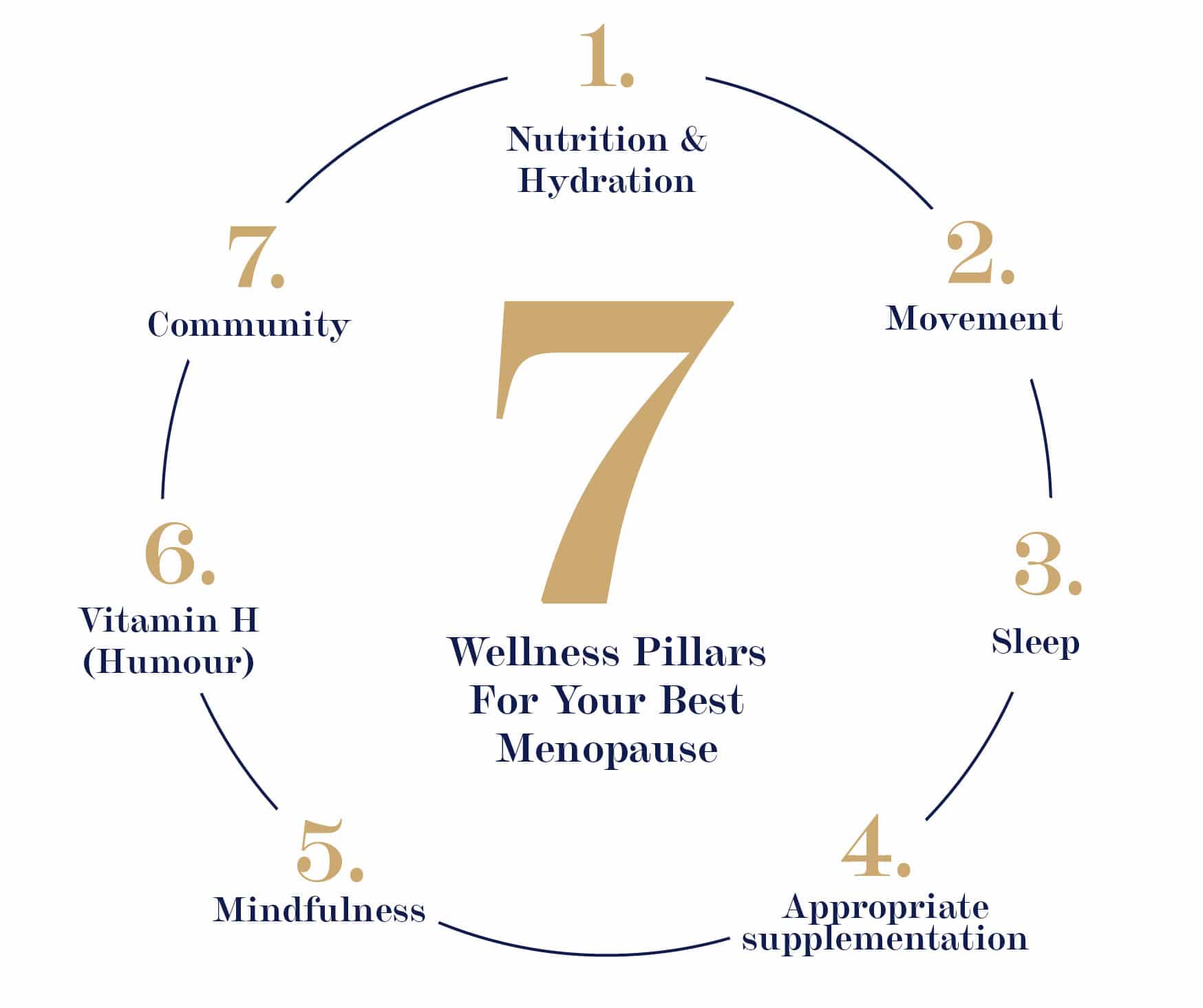A shifting body shape and – more often than not – some extra weight? Oh, joy. 😏
We get it. You’re not alone in this, and we’ve been there too. But here’s the thing – there’s little direct evidence that menopause causes weight gain. (Yep, read that again.) Instead, a mix of hormonal shifts, reduced activity, and a slower metabolism can all play a role. Plus, as estrogen levels change, fat naturally redistributes from the hips and thighs to settle more around the middle.
But it’s not just about then number on the scale. Many women also experience a shake-up in self-identity, a dip in confidence, and struggles with self-esteem. Oh, and let’s not forget that crushing fatigue. Sound familiar? Yeah, us too.
Stack all of this together, and it’s no wonder menopause can feel like a cocktail of challenges. And the mental toll – especially the knock to confidence – doesn’t always get the recognition it deserves. But that’s changing. Hallelujah.
Which is good news – especially when it’s time to pull on shorts or a swimsuit.
You might feel:
- Drained and low on energy 💙
- Not quite like yourself, as if your femininity is fading 💙
- Deflated when you catch your reflection 💙
- A little lost, like a piece of you is missing 💙
- Less confident in your sensuality 💙
- As if your body’s changing without your permission 💙
If any of this resonates, know that you’re not alone – and please, be kind to yourself. This is where self-compassion and self-care truly matter.
We’re not here to dish out the usual “Just love yourself, you’re beautiful” line. You are of course – but when you’re not feeling great, that’s probably the last thing you want to hear. 💙
Interesting fact:
This study showed body image dissatisfaction was more likely during perimenopause. Women in post-menopause women were less bothered.
Why are poor self-esteem and loss of confidence menopausal symptoms?
Even though they feel psychological, dips in self-esteem and confidence during menopause are deeply connected to the physical shifts happening in your body.
A lot of what’s unfolding during the menopause transition starts in the brain – where estrogen plays a crucial role in keeping things balanced.
“Hot flashes, anxiety, depression, night sweats – those symptoms don’t start in the ovaries they start in the brain,” says neuroscientist Dr Lisa Misconi. “Those are neurological symptoms we’re just not used to thinking about them as such.”
Dr Misconi PhD is a world-renowned researcher and the director of the Women’s Brain Initiative at Weill Cornell Medical College in New York. In her research, she’s discovered midlife women’s brains are sensitive to hormonal ageing as well as chronological ageing.
Related: How Menopause Affects Your Brain
5 powerful ways to improve body image, confidence and self-esteem during menopause
1. Revamp your fridge and pantry
A well-balanced menopause-friendly is the real deal – it can make a huge difference to both weight management and mood.
A few guidelines:
- Drink more water
- Remove table sugar
- Avoid refined flours
- Increase your greens
- Eat more (healthy) fat
- Choose vitamin B rich foods
- Ensure you’re getting enough omega 3 essential fatty acids
- Load up on phytoestrogens (get our FREE phytoestrogen list here)
- Say no to alcohol – it’s a massive depressant
You can get more in-depth info here.
2. Move
Several studies have shown that exercise makes us feel better about our bodies and increases our mood-enhancing endorphins. Plus, it increases energy and mobilises menopausal weight gain. Subsequently, we feel happier.
Exercise is vital not just for physical health but mental health as well. It doesn’t have to be formal exercise it could be a brisk walk around the block or dancing around the lounge.
We get it’s hard to push yourself when you’re feeling low or very tired but it has the potential to turn these feelings around. Try just five minutes to start with and see how you go. And remember the best exercise is the one you’ll do.
Related: Menopause & Why You Need To Exercise
3. Manage your mind
Many women in menopause can find their inner critic speaks loudly and their minds can ruminate for hours.
Taking control of the mind can be a powerful tool to try and get it to focus on the things you like about yourself.
Keep a diary and write them down. Better yet, record your wins i.e. “today I walked around the block”.
Related: Mindfulness Aids Menopausal Signs
4. Feed your soul
We know one of the symptoms of menopause can be a reluctance to socialise.
And goodness knows during the pandemic we’ve often had no reason to! But if you can try and engage in a relaxing or spiritual social event it may just lift your spirits.
Breathwork and yoga can be helpful here too. I’m constantly talking about the benefits of breathwork for good reason as the benefits can be far-reaching.
Try this exercise:
Related: Menopause Remedies You Can Do At Home – 5 Of Our Favourites
5. Don’t suffer in silence
It can be difficult to admit to being vulnerable when you’re feeling low. With that said, talking to other women experiencing similar signs can lift you. Knowing you’re not alone (and you’re not) can be reassuring. Please don’t hesitate to join our private Facebook group 40+ Club For Ageless Goddesses.
Conclusion:
If you’re struggling, menopause can feel like a minefield. But it may be useful to remember it’s a phase of life, not an illness.
We often say it takes a multi-factorial approach to have the best pre-, peri-, meno and post-menopause that you can. Take a look at our 7 Wellness Pillars For Your Best Menopause.
If you’re feeling hopeless and it’s affecting your life and relationships consider seeing a professional. Cognitive Behaviour Therapy (CBT) has been shown to help women during menopause.

Supplement Support
Many women find Merry Peri® and Perky Post® helps to give them a sense of calm. You can buy them here.

A healthy gut has been linked to mood – enter Happy Go Tummy® Click here to buy.











